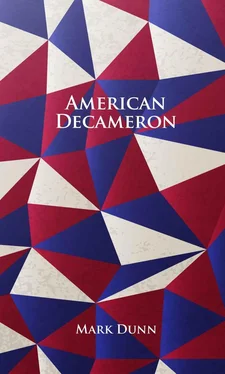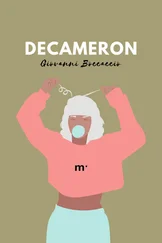“I say, gentlemen, if the entire city is without power and you have no hopes of taking your commuter lines up to Peekskill and Scarborough — Scarborough, now that has a nice English ring to it, doesn’t it? — may I ask why you have deposited yourselves here upon this most uncomfortable bench, rather than do that which I’ve noticed a number of other young executives doing: attempt to secure livery transportation just outside on 42nd Street?”
“Thanks for the suggestion, Pops,” said the man named Selman, “but my colleague McCluskey and I tried that very thing for almost an hour after getting thrown out of the Oyster Bar. Looks like we’re stuck in Manhattan for the rest of the night with all the rest of you stiffs. So we’ve staked our claim to half of this bench for the duration. As — I notice — you have too.”
“I’m rather in the same boat, it seems. I’ve rung up the friends with whom I’m stopping in Croton-on-Hudson and successfully dissuaded them from trying to motor down into the city tonight to rescue me. I survived the London Blitz. I can certainly survive one night on a wooden bench in Grand Central Terminal. Alas, though, my conscience may force me to relinquish this berth.”
The elderly British gentleman now dropped his voice to a whisper and leaned over to speak confidentially to his circumstantial companions. “I note, as certainly you must as well, a preponderance of stranded, wiltingly bedraggled working girls eyeing this bench with looks of the most heartbreaking longing.”
The dapper old man, who bore an uncanny resemblance to the British actor John Williams (forever typecast as proper butlers and proper police inspectors), was right. There were hundreds, perhaps thousands of New York commuters — their faces made flat and garish by the emergency police flood lamps that had been rolled in to light the main concourse — sitting, standing, or milling about. The large knot of those who had earlier stood at the information booth and demanded to know when the trains would start running again (only to be answered with apologies and shrugs) had long broken up. The terminal had since settled into placid communal acceptance of the inevitability of the great Northeast power blackout of November 9, 1965, the largest blackout ever to hit both the United States and Canada.
“You’d be a good ad man yourself,” said Selman to the old man. “How deftly you played that guilt card. McCluskey, we’re going to do the right thing and surrender our half of this bench to the ladies. But now the big question: which ladies? I don’t want to invite a female fistfight here. This isn’t a sale at Ohrbach’s.”
McCluskey chuckled. “Ohrbach’s doesn’t have sales. Get yourself married, Selman, and learn a few things about the female species and its natural habitats. Your housewife-loving clients at General Foods will be especially appreciative.”
McCluskey’s searching gaze caught the eye of a shoeless secretarial type. The young woman was carrying her pumps in one hand and a purse and Macy’s shopping bag in the other. He signaled her with an undisguised “come hither” look while stroking the seat that he was in the process of vacating. The woman’s face radiated gratitude.
“Oh, you are a lifesaver!” she gushed as she sat down. “My feet are absolutely killing me!” She referenced her bag with a nod. “I was right in the middle of Macy’s when the lights went out. I paid for all this, by the way. I didn’t loot it in the dark.”
Selman got the same appreciative reaction when he gave up his spot on the bench to an older woman and little girl. “How do you like my twofer?” he boasted.
The Brit rose last, and as he was doing so, motioned for a nun in full habit to take his place.
“I think you have us both beat,” laughed McCluskey.
“I did hesitate for a moment,” confided the old man. “I’m Church of England, after all. But in a time of crisis, one sets all religious differences aside. The name’s Leister, by the bye. John Leister.”
“Not Niles or Beverly or, um, Jeeves?”
Leister shook his head. “Just John.”
“Let’s drift,” said Selman. “Maybe we can find a nice, quiet corner for our next encampment.”
The three men meandered over to the clock, which was actually one clock with four different faces, each presenting in a different direction. The faces were opalescent, the whole unit set in a brass stand that rose from the top of the information pagoda situated right in the middle of the vast main concourse. Perched on one of the pagoda’s counters was a young woman working a crossword puzzle with the help of those lolling in front of her. “I need a five-letter word starting with L. A synonym for ‘vertical column.’” The woman spoke loudly so that anyone within projected earshot might render assistance. At least two dozen people, enlisting themselves in her challenge, cudgeled their brains, both individually and cooperatively.
A few moments later a man called out, “Lally.”
Selman turned to his cohorts. “What’s a ‘Lally’?”
“I think it’s a kind of vertical column,” answered McCluskey with a mischievous wink.
Among the sea of tourists and suburban New Yorkers set adrift by the blackout was a nice-looking, fifty-something-year-old woman with graying red hair who didn’t seem to be killing time at all. She maintained a stance that was rigid and attentive. Her look was one of obvious anxiety. She glanced up at the clock — a futile act since the electric clock’s quadruple sets of hands remained frozen in time, the great timepiece suspended in its chronometry at precisely 5:27.
The two younger men in the trio caught sight of the woman at the same time. They traded glances that bespoke sympathy but did not indicate a desire for personal involvement. However, a moment later, Leister took full notice of her himself and made an immediate, albeit cautious, approach.
“Begging your pardon, madam,” he said, “but there appears to be something troubling you. I wonder if I may be of some assistance.”
The woman smiled. Leister’s accent was disarming. “I’m fine. I’m just a fretter.”
“I don’t know when the power will be restored, but I’m nearly certain that everything is being done to make that outcome an eventuality. In the meantime, it’s heartening — don’t you think? — to see the city behaving itself so well on this most Cimmerian night.”
“This what ?”
Offering his hand: “The name’s John Leister. I teach philology. Historical linguistics. Across the pond. That means the U.K.”
“Hello, Professor. I’m Carole Adams. I teach second grade. Across the plains. That means Kansas. Wichita. Although I’m actually from Grand Island. That’s in Nebraska.”
“These are my new boon companions, Messrs. McCluskey and Selman. They work in advertising.”
The two ad men shook the hand of the fretful Midwestern schoolteacher.
“May I ask,” continued Leister, “if that which is troubling you could in some way be mitigated by any or all of the three of us?”
“You’re so kind. You’re like the Three Musketeers. I’d be happy to tell you. Over a nice cold Manhattan. It’s been a very difficult few hours. But for a while longer I really feel that I can’t leave this spot.”
“And why is that?” asked Selman. “Just how long have you been standing here?”
“I got here at about five fifteen.”
Selman glanced up at the clock. “Only twelve minutes. Not a bad wait.”
McCluskey groaned.
“And why have you been standing in this spot since this afternoon, Miss — is it Miss ? — Adams?” asked Leister.
“It’s Miss. I used to be a Mrs. But now, by choice, I’m back to being a Miss. I’ve been waiting for someone. It’s an involved story. It’s now become a potentially embarrassing one. I’d tell it to you, but—”
Читать дальше












